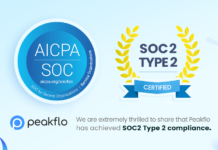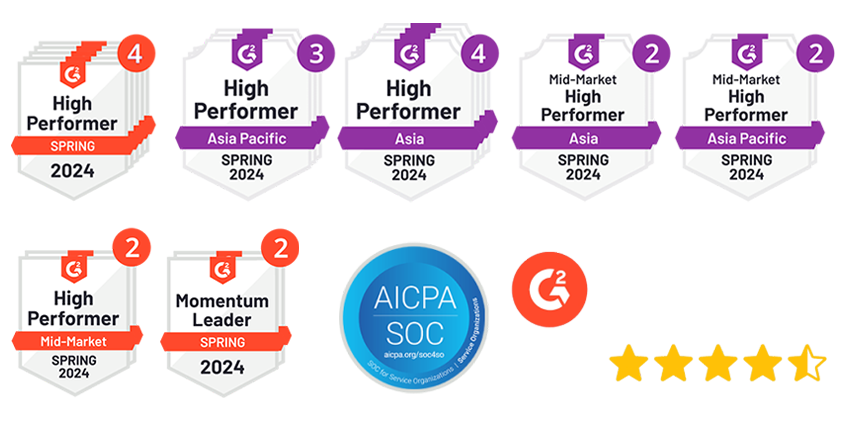Business travel is crucial in the business world, offering chances to meet clients, attend events, and explore new markets. Yet, it brings challenges. Raising travel requests, approval tracking, and managing expenses can be stressful.
In this blog, we’ll discuss these challenges and offer solutions. We’ll also provide insights on how to make business travel more efficient, cost-effective, and streamlined for all.
What is Business Travel?
Business travel is when professionals travel for work purposes. This can include attending meetings, conferences, or other work-related events in different cities or countries. Unlike leisure travel, business travel is about fulfilling job responsibilities that require physical presence.
In many companies, employees handle their travel arrangements. However, some companies have internal departments or outsource to travel management companies (TMCs) to manage these tasks. These companies help with booking transportation, accommodation, insurance, visas, and other travel-related services to ensure smooth and efficient business travel.
Business travel is an essential aspect of modern business operations, enabling organizations to connect with stakeholders, drive growth, and achieve their strategic objectives.
What does Business Travel Involve?
Business travel involves various steps and arrangements to ensure a smooth and productive trip. Firstly, transportation is a key consideration, whether it’s taking a cab for local meetings or a flight for longer distances. For extended stays, booking accommodation such as a hotel is necessary, confirming details like duration and room rates beforehand. Travel expenses typically cover transportation between the airport, hotel, and meeting venues, along with any sponsored meals.
Business travel often revolves around meeting clients, and stakeholders, visiting company branches, and warehouses, or attending conferences. The specifics of each trip can vary, but the overall process remains similar.
What are the Types of Business Travel?
Business travel can be categorized into several types based on the purpose and nature of the trip:
- Client Meetings: Traveling to meet with clients for sales presentations, negotiations, or relationship-building.
- Conference and Seminar Attendance: Attending industry conferences, trade shows, or seminars to network, learn about industry trends and promote products or services.
- Training and Workshops: Traveling for employee training, skill development workshops, or team-building activities.
- Internal Meetings: Traveling to other company offices or locations for internal meetings, project collaborations, or training sessions.
- Site Visits: Visiting project sites, factories, or other locations for inspection, assessment, or progress monitoring.
- Supplier or Partner Visits: Traveling to meet with suppliers, vendors, or business partners to discuss products, services, or partnerships.
- Recruitment: Traveling for recruitment purposes, such as attending job fairs, conducting interviews, or meeting potential candidates.
- Corporate Events: Attending or organizing corporate events, such as annual meetings, shareholder meetings, or company retreats.
- Exploratory Trips: Traveling to explore new markets, business opportunities, or potential locations for expansion.
These types of business travel can vary widely in duration, frequency, and purpose, but all play a significant role in the operations and growth of businesses.
What are the Benefits of Business Travel for Corporates?
Business travel offers numerous benefits for companies including:
Enhanced Networking Opportunities: Business travel enables employees to forge connections with individuals from diverse backgrounds, expanding their professional network. These connections can prove valuable for the company’s growth and development.
Engagement with Potential Clients: Business travel often leads to unplanned encounters with potential clients, providing employees with the opportunity to showcase products or services in a natural, engaging manner.
Advantages of Face-to-Face Meetings: In-person meetings allow for more effective communication and relationship-building compared to virtual interactions. They can lead to quicker decision-making and a deeper understanding of client needs.
Cultural and Learning Experiences: Travel exposes employees to different cultures and work environments, promoting personal and professional growth. They can bring back new ideas and perspectives to benefit the company.
Tax Benefits and Savings: Businesses can deduct travel expenses, including flights, accommodation, and meals, reducing their overall tax burden. This can result in significant savings for the company.
Involvement in Prestigious Projects: Business travel often involves participation in high-profile projects or events, providing employees with valuable experience and exposure within the company.
Enhanced Employee Well-being: Business travel can help prevent employee burnout by offering a change of pace from their regular work routine. It provides a valuable opportunity for employees to relax and recharge, ultimately improving their overall well-being and productivity.
Challenges of Managing Business Travel
Many businesses require assistance in managing company travel, and several challenges impact their daily operations. These challenges include:
1. Handling Multiple Travel Requests
Coordinating travel requests from various departments can be challenging, especially without a dedicated travel administrator. Requests may come through different channels, such as emails, messages, or in-person, making it difficult to track and manage efficiently.
2. Managing Approval Processes
Ensuring that travel is authorized by the appropriate personnel, such as team leaders or finance teams, can be time-consuming. This adds additional steps to the travel planning process and can lead to delays if not managed effectively.
3. Expense Control
Managing travel expenses is crucial to stay within budget. Businesses often overspend due to limited access to affordable options and relying on traditional booking methods. Implementing cost-effective strategies can help control expenses.
4. Employee Travel Planning
Allowing employees to arrange their travel can reduce the workload for administrative and finance staff. However, ensuring compliance with company policies and cost-effectiveness can be challenging.
5. Error Management
Mistakes in travel requests and expense claims can lead to inefficiencies and increased costs. Implementing effective error management processes and using collaborative tools can help reduce errors and improve overall travel management.
Tips to Avoid the Pitfalls of Business Travel
To effectively manage business travel, companies should streamline the process and ensure that employees understand and comply with travel policies. Here are some key points to consider:
- Simplify Rules: Avoid having too many complex or contradictory rules, as this can confuse employees and lead to non-compliance.
- Reduce Touchpoints: Minimize the number of approvals and additional steps required for travel authorization, as excessive bureaucracy can slow down the process.
- Automate Processes: Use a corporate travel management system to automate steps like document filing and receipt submission, reducing manual effort and potential errors.
- Provide Clarity: Communicate travel policies and procedures to employees to avoid confusion and ensure compliance.
- Monitor Expenses: Regularly review travel expenses to identify any potential misuse or non-compliance with policies.
- Offer Support: Provide employees with access to travel support services, such as a travel helpdesk, to assist with any issues or questions that arise during their trip.
By implementing these strategies and using technology to automate and simplify the process, companies can improve compliance and make business travel more efficient for employees.
What is the Importance of Automation in the Business Travel Process?
Automating business travel processes is crucial for streamlining operations, reducing costs, and improving efficiency. By using travel management software, companies can automate tasks such as travel requests, expense report generation, and approval workflow. This eliminates manual errors, reduces paperwork, and saves time for employees and administrative staff.
Additionally, automated solutions can enforce travel policies and approval processes, ensuring compliance and reducing the risk of overspending. With real-time access to travel data and analytics, businesses can make informed decisions, negotiate better deals with vendors, and track travel expenses more effectively.
Peakflo’s Travel and Expense Management solution revolutionizes the business travel process, offering a seamless experience with enhanced efficiency and control. By automating policy enforcement, expense submissions, and expense anomaly detection, Peakflo significantly reduces administrative burden. The platform provides real-time visibility into spending, empowering businesses to make informed decisions and identify cost-saving opportunities. It is an essential tool for businesses seeking to streamline their travel management processes.










![Why AI Sales Calls Are Making Good Sales Reps Even Better [2025 Guide] ai sales calls](https://blog.peakflo.co/wp-content/uploads/2025/09/65168cf6-3001-4733-8cbc-12d5684cf449-218x150.webp)


































